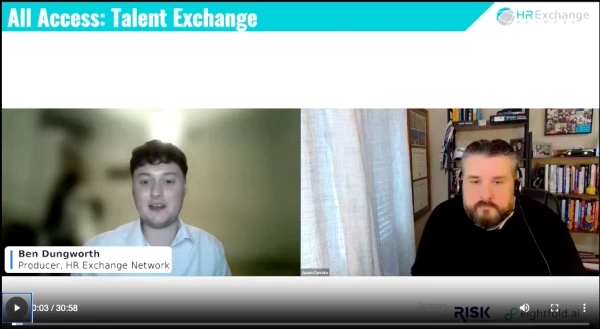Talent Acquisition in the Digital Age
Add bookmarkTalent acquisition is changing, and HR must change with it. In the process, TA costs have jumped by 26% over the last few years according to Gartner. How does HR respond to the shifting balance of power as it moves away from the employer to the candidate?
Talent Acquisition
We must first understand this simple reality for candidates. According to Gartner, candidates feel:
-
Overwhelmed. The wealth of available information, meant to increase transparency, is overloading candidates and making it hard for them to decide on a job offer.
-
Overlooked. It has become so easy to apply for jobs that the number of applications per job has soared, so candidates have to wait longer to hear back from employers, if they hear back at all.
-
Regretful. Increased demand for talent spells greater opportunity, but that is causing candidates to increasingly regret their decisions to accept offers.
As a result, Gartner said 46% of new hires from the last 12 months say they would take employment again with their current employer given the chance. Furthermore, the research giant said 38% of new hires regret their decision to leave their job within 12 months, compared to 7% who don’t regret their decision.
REPORT DOWNLOAD: Building a Global Succession Planning Strategy
So, how do HR professionals recruit these candidates? According to Gartner:
-
Build a messaging strategy that creates value for candidates — starting right from the messaging in job descriptions.
-
Surface signals of candidate commitment earlier in the process
-
Guide candidates to make confident decisions they won’t regret.
Bottom line here, candidate regret is dangerous. It leads to lower productivity and lower engagement.
Of course, some of this could be construed as being related to the generational impact of the worker. For more details, HR Exchange Network Contributor John Whitaker talks about the “Look Down” generation.
The "Look Down" Generation
It literally drives me crazy...driving in the morning/evening commute every day is a stressful task without added annoyances, but there it is, every.....single.....day. After finally navigating your way around the human impediment clogging traffic for the last five miles, you look over at the driver and you see it. The "look down."
You know the look-down, right? Phone in lap, texting/dialing/syncing/selecting music, etc.? The "I'm not even pretending to pay attention dude, just leave me alone and let me sit here in the left lane until I'm good and ready to move over three lanes and exit?" It's maddening (especially knowing the blare of my horns is drowned out by the Beats headphones they are sporting.)
It's hard not to notice, and truthfully it's hard not be hypocritical about it - I'm just as guilty of taking a glance, answering a text, or managing my incredibly counter-productive Waze app which basically dares me to update traffic conditions while I'm driving. So dangerous, stupid, self-absorbed, yada yada yada...until we finally have "MADAT" (Mothers Against Dumb-A** Texters), this is the world in which we live. For Millennials and GenX, it's an ever developing, constantly growing challenge. And we should be buggy-whipped for being drawn into technological retardation.
But for the younger generation, it's even more problematic. With a constant distraction monopolizing their limited attention span from the day on whence they breathed life into their lungs, I'm convinced "Generation Z" (or whatever kitschy name we start marketing) have lost the innate ability to know what the hell is going on around them. I've got a 15-year old son learning to drive - he can expertly perform the act of navigating a vehicle, but the kid literally couldn't find his way home with bread crumbs and a compass. Try this with your own kids - after you arrive at whatever intended destination you intended, ask them if they can tell you how they got there. You'll be amazed.
That's because my kids (and many of yours) been in a "look down" mode for the last ten years - they don't know North, South, street names, nuances of short-cuts, etc. They know the destination, but they are completely missing the journey. Our kids are going to be different in many ways ~ in particular, they will be more technologically adept than we ever dreamed of being, but they are (generalization alert) by and large missing the world and the people around them.
And here's the rub - as much as we would like to deny we ever use our "gut" in talent selection, we have innately spent a lifetime observing the world around us. Years spent people-watching in airports, in restaurants, in class, at the ballpark - the exact kind of activity my kids would find boring. The "people watching" past-time that many of us have employed for our entire existence actually had/has benefits - huzzah!!
Hell, our kids may be right, it still seems boring. But "boring" doesn't necessarily need to be a negative. Sometimes it really is the seemingly insignificant details along the way that make us wiser.
So keep your head up, kiddo. There's actually more going on around you than it seems.
John Whitaker is the Vice President of Talent Acquisition for DentalOne Partners. He contributed to this article. For more, click here.
NEXT: Hilton’s Gretchen Stroud talks virtual training


























